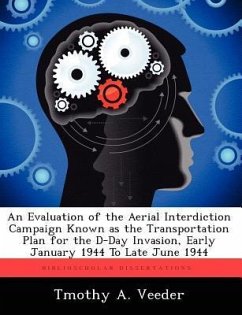The various airmen leading the air war had great differences of opinion regarding what to target in the European theater of operations in support of Operation Overlord. The central leadership figures were Lt. General Carl Spaatz, USSTAF commander, and Air Chief Marshal Trafford Leigh-Mallory, AEAF commander. Each of these military men obviously wanted to support the planned Allied invasion, but they held differing opinions in regard to how to best support the invasion troops. They were greatly influenced by both personal experience and the advice of their respective scientific advisors, Walt W. Rostow and Dr. Solly Zuckerman. Also, Air Marshal Tedder, Deputy Supreme Allied Commander, and Air Marshal Harris, Commander of the RAF Bomber Command, contributed to the decisions to carry out the transportation interdiction campaign.This research focuses on the period January 1944 through the end of June 1944. It includes a literature review of published memoirs and historic accounts of the individuals involved in the decision to implement the transportation plan. The archives of the Air Force Historical Research Agency were accessed to obtain actual accounts and directives implementing the pre-D-Day interdiction campaign. Numerous facts support a discussion of each of the airmen's interests and the controversy that surrounded the transportation campaign.The implementation of the transportation interdiction campaign resulted in the successful denial of German reinforcements to the Normandy beachhead. This success was a result of five significant factors.








